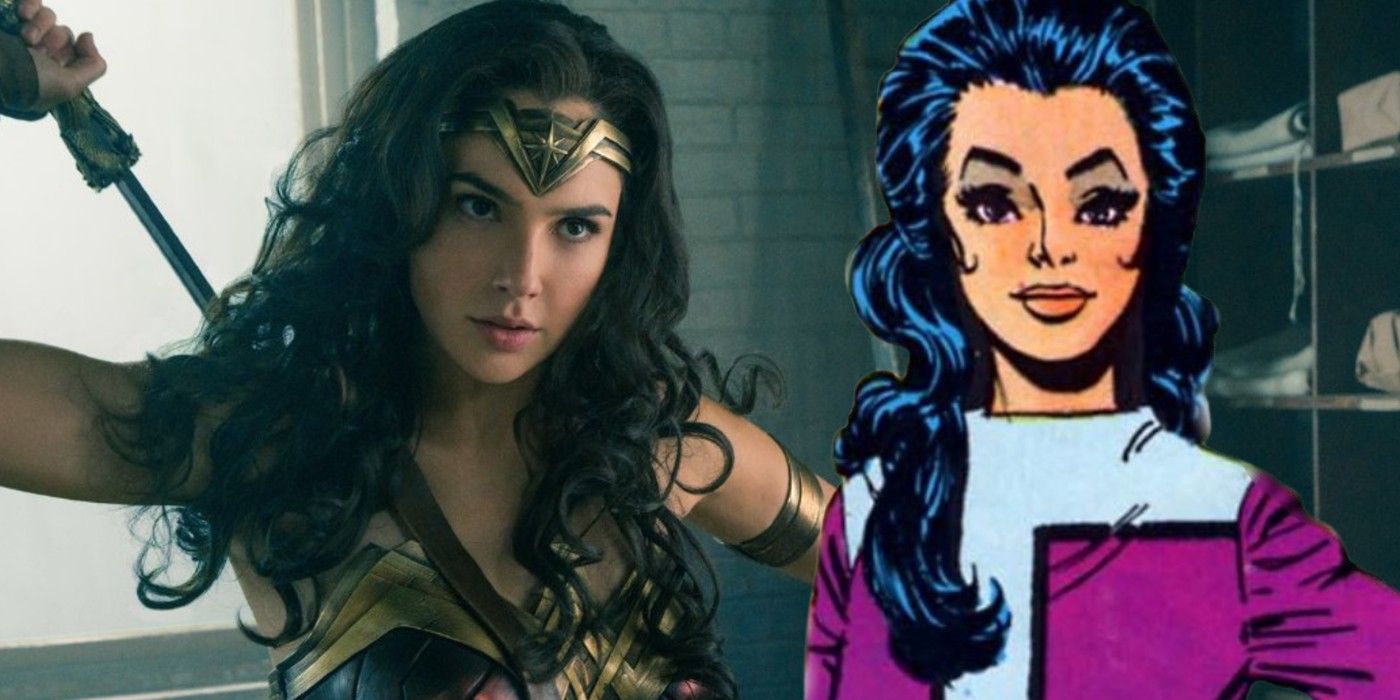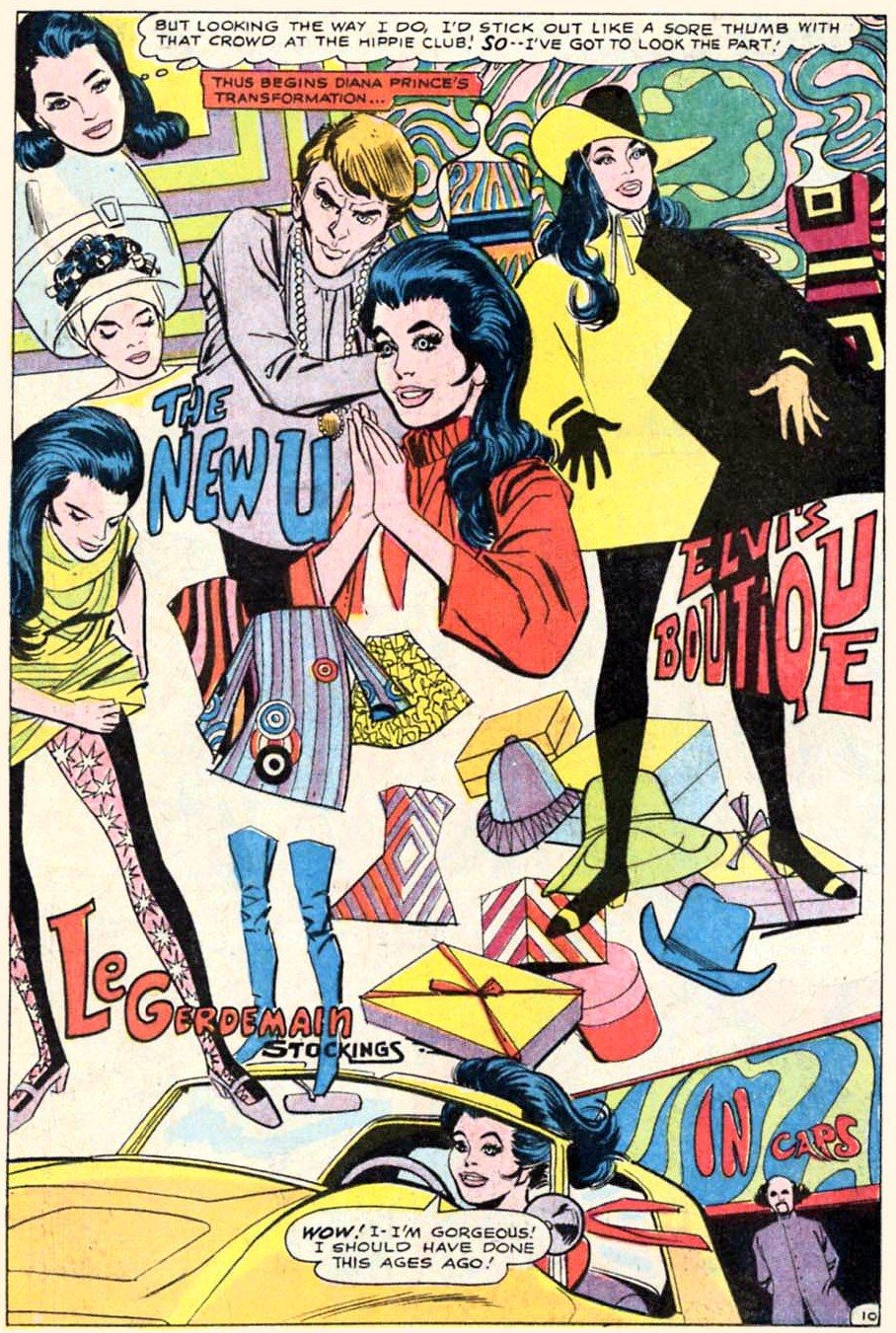
DC almost ruined Wonder Woman forever in the 1970s through a dreadful misunderstanding of audience expectations and trends of the era. The infamous "mod era" of Wonder Woman comics was created by Denny O'Neil and Mike Sekowsky, two male writers who tried to reinvent the character based on what they thought female audiences desired out of DC's premiere heroine. The result was so disastrous for Wonder Woman and the sales so dreadfully low that the entire six-year era was undone at the earliest possible opportunity... but O'Neil and Sekowsky's run remains a terrible cautionary tale.
The Cold War between the USA and USSR raged during the late 60s and early 70s; this gave way to spy thrillers such as James Bond, The Man from Uncle, and The Avengers (the British television show and no relation to the Marvel superhero team) becoming quite popular. At the same time, Wonder Woman comic book sales were sluggish compared to DC's other premiere heroes Batman and Superman. As such, O'Neil and Sekowsky decided to completely revamp Wonder Woman in the vein of a spy thriller. They began by stripping Wonder Woman of all her superpowers...and amazingly, things got worse from there.
The magic of the Amazons runs dry, and they must journey to another dimension to "rest and renew" their powers - but Wonder Woman stays behind to be with Steve Trevor, and relinquishes all her abilities as a result. She decides to fight crime as Diana, not Wonder Woman, and learns kung-fu from a blind Chinese mentor named I Ching. Together, the two travel around the world in stories full of intrigue, spycraft...and copious amounts of shopping montages.

The era was full of moments where Diana needed a disguise or a more fashionable outfit to infiltrate a high-society event. On more than one occasion, multiple new love interests were happy to foot the bill. She later even opened her own fashion boutique, dedicated to mod fashion (a popular and fast-fading trend). The writers also wished to separate Diana and Steve Trevor as part of her new reimagining (even though Diana's sole reason for giving up her powers was to stay with Steve). Steve was later killed in Wonder Woman #180, but that was the least of Diana's problems: prominent feminists of the era were furious at O'Neil and Sekowsky's decision to de-power the world's most iconic female superhero and turn her into, essentially, a trendy globe-trotting copy of Emma Peel.
The "new Wonder Woman" era came to a screeching halt in 1973 when the writers finally heeded the overwhelmingly negative criticism. I Ching was killed, Diana journeyed to Paradise Island, reunited with the suddenly-returned Amazons, and reacquired her powers and costume. As a hero based in ancient Greek mythology and stories, Wonder Woman has a timeless quality that no amount of shameless trend-chasing can possibly reproduce.
from ScreenRant - Feed https://ift.tt/3ewgbCk

No comments: